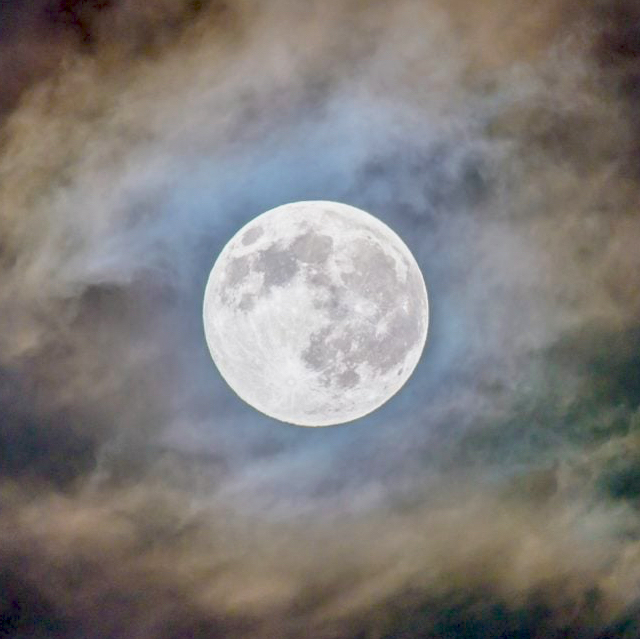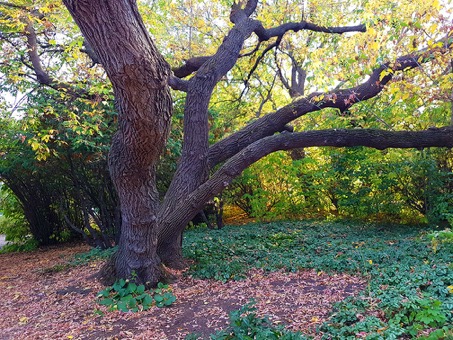Gratitude is the real prayer, it is an offering from the heart, there is no demand or request in it. The moment we intend to ask something, we have already transferred the baton of prayer from heart to the mind.
A prayer, when not an expression of our gratitude, is usually a device to find comfort, from the mental or emotional torment of our personal fears and desires.
We could be praying directly for ourselves or generously praying for everyone’s peace, health and happiness in the world, knowing that our sense of comfort is dependent upon the peace and wellbeing of those around us. In the end, every such prayer, even from the genuine kindness of our hearts, is intended only to bring us personal comfort.
A prayer for personal wants, is completely rooted in our self-centered hopes and wishes, while the apparently non-self-centered prayer, unobtrusively soothes our ego.
If in our alert awareness, we can catch a prayer fluttering as an intention a moment before it is conceptualized in our minds- we could observe and examine its original impulse. We may find that a prayer, usually considered noble and virtuous, is often selfish in origin.
We as humans, are afraid of our weakness and vulnerabilities. Seeking protection in the divine, we hope to receive support from an invisible power.

When we ask for fulfilment of our wishes or security from our private fears, those thoughts strengthen the identification with our personal separate selves. Such a prayer, either directly or indirectly, is only an outlet for the concerns of an isolated mind, entangled in its countless illusions.
More difficult to accept, is that the one we are praying to, is also a mental projection. We pray to our personal God, regardless of how we acquire that image, through which religion, theology or mythology- they are only the raw materials used to sculpt our personal imitation of divinity.
Such prayer is the spiritual equivalent of temporarily unloading our worries, by dumping them into a receptor made up of our personal beliefs. We may have tremendous faith in our beliefs, we may even be ready to die for our faith. But we are only ever relating to our own mind, in the name or form of an image, even during our most intimate communion with the divine.
This does not necessarily mean prayer is ineffective.
A strong spiritual conviction can and often does lead to mystical experiences, including profound feelings of bliss and fulfilment.

This profound feeling fills in through the openness, the receptivity, the trust, inherent in a believer’s psyche. The object of that trust is immaterial, and is generally acquired from the religious or cultural upbringing, subject to our external influences and conditioning.
We nevertheless perceive an invisible support, that temporarily alleviates our problems, when we deeply immerse in prayer. We experience a comfort that bubbles from deep within our hearts, and submerges all our superficial concerns in its soothing, gently lapping waves. This is a perceived subjective experience.
In these moments, we are open, the ego that always controls and separates us from everyone, is temporarily in abeyance. With an attitude of passive humbleness during prayer, we ask, in a readiness to receive. We are not creating barriers, freely allowing the reality to fill our being. We are naturally free of resistance, completely accepting, and welcoming.

This humility opens our heart, giving rise to a feeling of gratitude, that naturally wells in our open being. In such moments of prayer, when our heartfelt gratefulness floods our being, there is no elaborate aggressive thinking from the mind, only a gentle being-knowing-awareness, which is closest to our reality. In this humble welcoming acceptance, we transmit the all-pervading reality into our individual body-mind, where it finds its expression through our gratitude.
This fills us with a sense of fulfilment. We experience being connected to the whole, being listened to, being understood, almost feeling an alive alert presence who receives our prayer. We therefore encounter the bliss, beauty and compassion of our own reality, through our gratitude, during prayer.
We may have heard about a non-believer, who did not believe in anything beyond the material verifiable facts of science, but was found praying to an unknown power, to find comfort in a deep personal crisis- with a faint hope, “If anyone is there, who can hear this…”.
This only reflects our absolute vulnerability and helplessness as a body-mind. Our weakness in a physical form is undeniable. We are exposed to torment by diseases and accidents. Fluctuations in our surroundings frequently affect our physical and mental well-being.

We have a tendency to look for comfort and support, when we are desperate and things are beyond our control. There is nothing wrong in asking for help. Only a false pride which is an extension of ego, tries to stand tall in the face of all adversities, not admitting any weakness.
The humility that we embrace, when we realize that we cannot control everything that happens, prepares the ground for the genuine gratitude. For we see that through our numerous trials and tribulations in life, we have still found much joy, kindness and happiness.
Prayer in a spiritual crisis.
There is another flavour of prayer that arises from a spiritual crisis, when we hit a wall in our quest for the divine and cannot seem to move past it. This begins as a restlessness, a frustration. It is the plight of our belief in isolation as an individual separate entity. We feel a desperate longing for union with our reality, wanting to consciously, knowingly be one with our wholeness, our true nature.
We may meet an inner crisis, precipitated by a sense of lack, of something significant missing. Not necessarily a dark night of the soul, but a deep yearning for unity with the truth, a spiritual longing that demands to be urgently fulfilled.
This forceful inner turmoil brings us to a screeching halt at the edge of the mind, from which we cannot jump beyond. Such a prayer is an echo of our rational search for meaning, hitting the boundaries of the mind.
We know there is more to the reality of the world which we perceive. We can feel it within us, pulsating in our being, but we do not know how to access it. Having searched and exhausted all our endeavors as a body-mind, we face our limitations and there is nothing more left to do, but to surrender to this longing.

At some point, all the efforts of our intellectual exploration are exhausted to no avail. There rises a visceral cry, that demands this separation to end. The control of mind and ego, on the constant seeking is relinquished.
This is where a real prayer begins to take shape, as our yearning starts to lose its solid footing in all that can be known by the mind. Turning sublime, rising towards the unknown mysterious reality it is drawn by, it naturally merges with the mystical realm.
This prayer may not instantly deliver us to an undeniable experience of our reality as we implore, but there is a cleansing of sorts. For in the thick of it, we hear our true calling loud and clear, which otherwise remains lost or subtle among the worldly noises.
We feel invigorated with a sense of having touched the divine, refreshed with a paradoxical hope, as we gently emerge out of our despair. This is just a temporary state with no lasting impression, but in a strange way, it reaffirms and validates our longing. Hence a renewed hope for its fulfilment.
We all know occasions of spontaneous gratitude, as the real prayer.
When we are happy and content, in the moments of being at peace with everything just as it is. There is no want, no asking, no requests, no demands from existence. On such occasions, we ourselves are a spontaneous expression of our prayer.
In these precious moments of gratitude, when our hearts are brimming with a fullness that simply needs to be poured out, our whole being becomes an unuttered prayer. This gratitude emanates from within, enveloping us in a sublime fervor, in which we relinquish all doubt and can almost touch the divine, throbbing within our own being.

In these moments, we become one with our offering. We are the embodiment of this gratitude and through this, we touch the reality, our essence, to whom it is offered. In fact, the intended recipient of our gratitude is not important, the contentment is found in the gratitude itself.
That to whom we offer our thanks, is merely a concept conjured up by our personal belief system, an image and name projected and revered by our conditioned mind. That image comes from the mind, and the words of prayer from the mind are offered to it.
But the gratitude itself is divine, it is not contained in the words of the prayer, it may soak them with its fragrance, but it is not confined to them. It permeates the channel of silence, pervading the words. The gratitude rises from the perfection of reality, moving through its eternal flow, and merges into the wholeness of our real being. Just as the words of a prayer, our personal body-minds merely serve as a passage for it. This gratitude is the real prayer.



Comments
2 responses to “Gratitude is the real prayer”
Spontaneous/natural responses to our experience cannot be intentional, crafted, designed, planned, contrived, schemed into being. “Pray always” cannot be commanded. It is only a description of an attitude/perspective that is simply “there,” as “one thus come” in the here/now of daily experience. We can be grateful and we can be conniving. Reminding ourselves to be grateful and counting our blessings misses the way of being that simply is, which comes out of immersion in the right kinds of emptiness, stillness and silence that grounds and directs us unintentionally on our path of knowing/being here/now, not knowing what we are doing or why in a “Don’t let the left hand know what the right hand is doing” kind of way.
Thank you Jim!
You are right, a ‘planned’ prayer on schedule with reminders, can only come from the mind.
But a spontaneous prayer is usually from the heart, hence more likely to open our being to gratitude and may naturally bring us to the experience of ‘ true’ prayer.